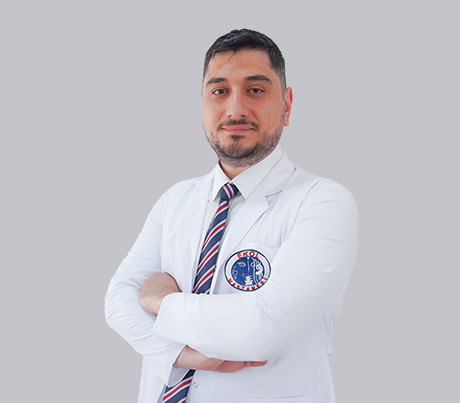Cancer of the rectum is a type of cancer that forms in the cells in the last 15 cm of the large intestine. It has similar symptoms to colon cancer, but rectal cancer may require more specialized treatment than other colon cancers.
The most common symptoms of rectal cancer include constipation, diarrhea, abdominal pain, gas, bloody stools, weight loss and fatigue. Some people may have no symptoms at all, so regular screenings are important.
Risk factors for rectal cancer include old age, genetic predisposition, smoking, poor diet, high fat and physical inactivity.
Rectal cancer is a type of cancer that starts in cells in the rectum, below the sigmoid colon and above the anus. Symptoms of rectal cancer are diarrhea, constipation, or blood in your stool. Treatments are varied as surgery, chemotherapy and radiation. Early diagnosis of rectal cancer is extremely important.
The rectum is an organ that is an important part of the digestive system in the human body. The digestive system takes vitamins, minerals, carbohydrates, protein nutrients and undertakes the task of removing waste materials from the body.
In this article, we will mention the causes of rectum cancer and symptoms of rectum cancer in the first part. You can read about rectum cancer treatmen options and a comparation of rectum cancer and colon cancer. In the final part, we will talk about how to live with rectum cancer.
The exact cause of rectal cancer is unknown. Some risk factors have been identified over the years. Some of the risk factors can be lined up as below:
The most common symptom of rectal cancer is bleeding, and its incidence increases in advanced stages. Unexplained fatigue is also among the strong symptoms of rectal cancer. Some of the other symptoms of rectum cancer can be lined up as below:
If you experience any of these symptoms, it is recommended that you consult your healthcare provider immediately. The underlying cause of these symptoms may be different, but remember that early diagnosis is very important in the management of rectal cancer.
Combinations are often used in the treatment of rectal cancer. Some of the treatment options for rectum cancer can be lined up as below:
If you like to learn more about treatment options for rectum cancer at Ekol International Hospitals oncology clinic, please do not hesitate to concact with our patient help service.
There are some differences and similatiretis between rectum cancer and colon cancer. The colon and rectum are both located in the large intestine. However, they have different bodily functions. The colon absorbs water from the stool and transmits the stool to the rectum. Some of these differences and simularities can be lined up as below:
Living with cancer may not be easy. However, appropriate support and care can be obtained to achieve a good standard of living. Some of the tips for living with rectum cancer can be lined up as below:
 Date of birth 10.11.1987 Education and Expertise Karadeniz Technical University Faculty of Medicine Kocatepe University Ankara University Faculty of Medicine Konya Health Sciences University Professional Interests: Obesity (fatness) surgery and metabolic surgery Laparoscopic reflux surgery Laparoscopic gallbladder surgeries Gastric balloon application ERCP, EMR, ESD (Advanced Endoscopic procedures) Laparoscopic pancreatic cancer surgery Laparoscopic gastric and intestinal cancer surgeries Hemorrhoid surgeries Perianal fistula surgeries Laparoscopic abdominal and inguinal hernia surgeries Oncoplastic Breast cancer surgeries Natural cancer surgery (NOSE) Thyroid cancer and goiter surgeries. Memberships to Scientific Organizations Turkish Surgery Association Turkish Obesity Surgery Association Surgical Oncology Association National Society of Endoscopic Laparoscopic Surgery He is a member of the Bariatric and Metabolic Surgery Association. Courses and Certificates: Turkish surgical association proficiency exam (Board) certificate of achievement in 2018 He has more than 100 papers presented in national and international congresses and more than 50 articles published in international journals. Foreign language English
Date of birth 10.11.1987 Education and Expertise Karadeniz Technical University Faculty of Medicine Kocatepe University Ankara University Faculty of Medicine Konya Health Sciences University Professional Interests: Obesity (fatness) surgery and metabolic surgery Laparoscopic reflux surgery Laparoscopic gallbladder surgeries Gastric balloon application ERCP, EMR, ESD (Advanced Endoscopic procedures) Laparoscopic pancreatic cancer surgery Laparoscopic gastric and intestinal cancer surgeries Hemorrhoid surgeries Perianal fistula surgeries Laparoscopic abdominal and inguinal hernia surgeries Oncoplastic Breast cancer surgeries Natural cancer surgery (NOSE) Thyroid cancer and goiter surgeries. Memberships to Scientific Organizations Turkish Surgery Association Turkish Obesity Surgery Association Surgical Oncology Association National Society of Endoscopic Laparoscopic Surgery He is a member of the Bariatric and Metabolic Surgery Association. Courses and Certificates: Turkish surgical association proficiency exam (Board) certificate of achievement in 2018 He has more than 100 papers presented in national and international congresses and more than 50 articles published in international journals. Foreign language English